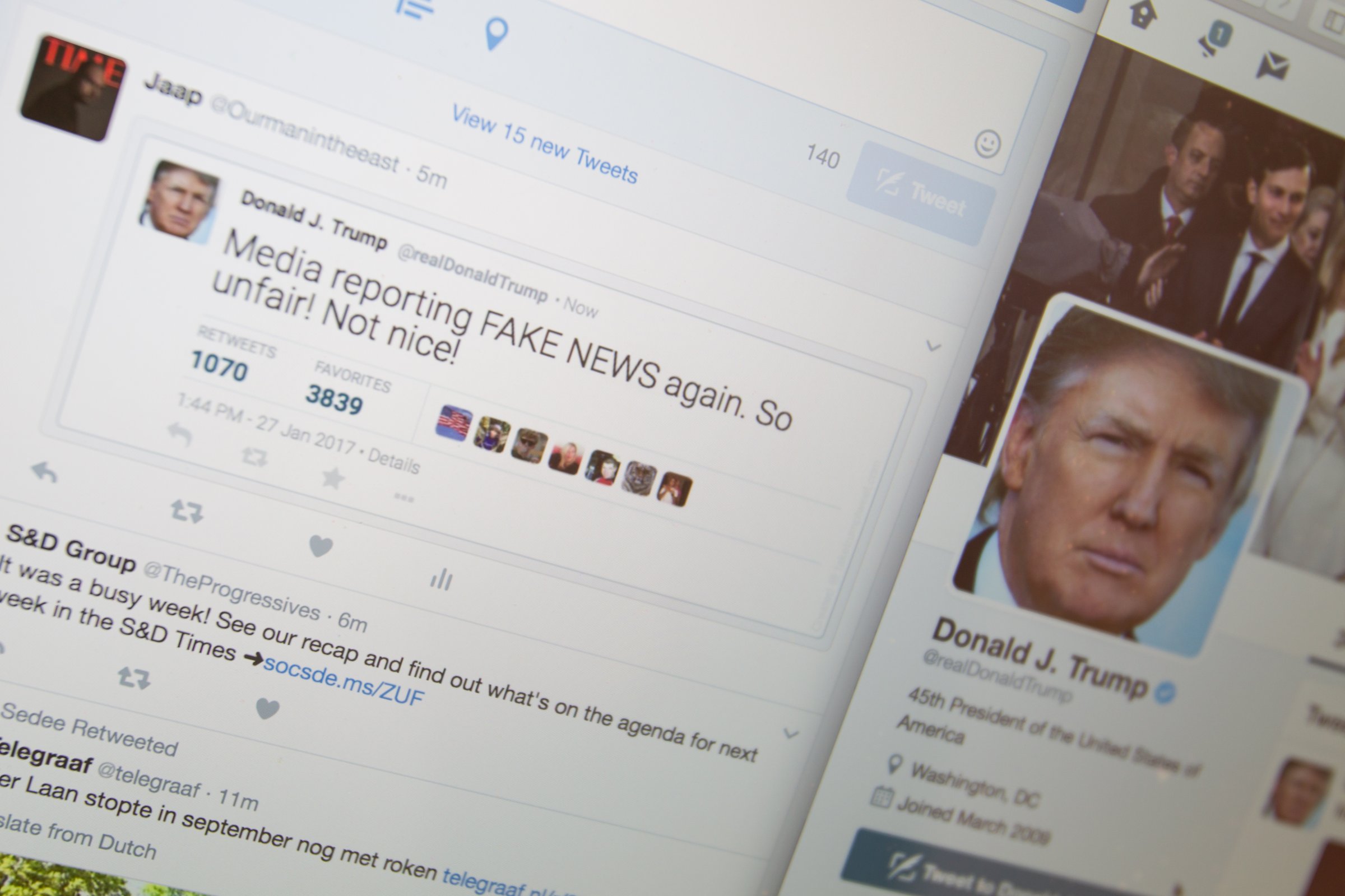
It’s not fake news. The American Dialect Society’s 2017 Word of the Year is: “fake news.”
The society chose the phrase on Jan. 5, which they defined as “disinformation or falsehoods presented as real news” and “actual news that is claimed to be untrue.” It was selected for “best representing the public discourse and preoccupations of the past year,” according to a release from the ADS.
The word was also added as an entry on Dictionary.com, though that definition only encompasses news stories that are fabricated.
The word was actually considered by the ADS a year ago for 2016’s Word of the Year, but it wasn’t selected because it’s meaning was restricted to “fictional or embellished stories presented as authentic news, disseminated for financial gain or for propagandistic purposes,” the release said. The ADS noted that the meaning has been altered as the word has become widely used by President Donald Trump.
“When President Trump latched on to fake news early in 2017, he often used it as a rhetorical bludgeon to disparage any news report that he happened to disagree with,” said Ben Zimmer, chair of the American Dialect Society’s New Words Committee. “That obscured the earlier use of fake news for misinformation or disinformation spread online, as was seen on social media during the 2016 presidential campaign.”
Members in the 129-year-old organization include linguists, lexicographers, etymologists, grammarians, historians, researchers, writers, editors, students, and independent scholars, according to the ADS release.
More Must-Reads from TIME
- Why Trump’s Message Worked on Latino Men
- What Trump’s Win Could Mean for Housing
- The 100 Must-Read Books of 2024
- Sleep Doctors Share the 1 Tip That’s Changed Their Lives
- Column: Let’s Bring Back Romance
- What It’s Like to Have Long COVID As a Kid
- FX’s Say Nothing Is the Must-Watch Political Thriller of 2024
- Merle Bombardieri Is Helping People Make the Baby Decision
Contact us at letters@time.com